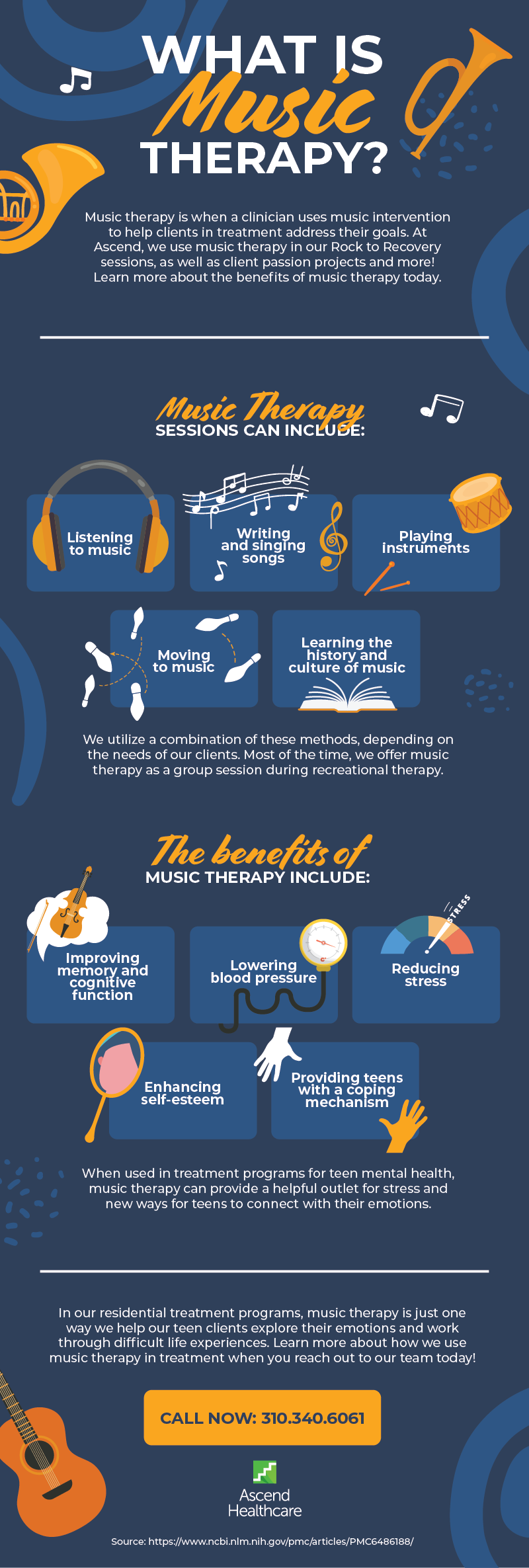Music has always been a form of self-expression and catharsis. But for many teens, modern music feels like it was made just for them. In a time when the world can feel increasingly isolating and overwhelming, music provides a much-needed outlet for teens to express their emotions. Music and mental health can be linked, which is why music therapy is an important tool in recovery.
Some Benefits of Music for Mental Health
There are many benefits of music for mental health. Music has the ability to touch people on a deep emotional level, and that can be incredibly powerful for someone who is struggling with their mental health. For teens, modern music can be particularly effective in helping them to express their feelings and connect with others who understand what they’re going through.
Listening to music can help you relax, boost your mood, and even improve your sleep quality. And if you’re struggling with your mental health, those things are crucial. That’s why we use music therapy for mental health rehabilitation at Ascend. It’s a way for our clients to connect with their emotions and start working through them in a healthy way.
The Connection Between Music and Mental Health
Music therapy is an evidence-based practice that uses music to achieve therapeutic goals. Music therapy has been shown to be an effective treatment for a variety of mental health disorders, including anxiety, depression, and PTSD.
If you’re a parent of a teen in treatment, or if you’re considering treatment for your teen, here are three ways music therapy can help:
1. Music Can Help Teens Connect with Their Emotions
Many teens struggle to vocalize how they’re feeling; they may not even know how they’re feeling themselves. But that doesn’t mean their emotions aren’t there. Music can help teens tap into their emotions and start working through them. When teens are able to put their feelings into words — even if those words are somebody else’s lyrics — it can be incredibly empowering.
2. Music Can Help Teens Cope with Stressful Situations
Everyone experiences stress – it’s a normal part of life. But for teens struggling with their mental health, stress can be even more overwhelming. That’s where the benefits of music for mental health come in. Listening to calming music can help ease stress and anxiety. Listening to music they like can also provide a distraction from intrusive thoughts, which is often helpful for teens with OCD. For teens who have experienced trauma, music can be particularly soothing, helping them feel safe and calm when nothing else seems to be working.
3. Music Can Help Teens Express Themselves Creatively
Creativity is an important part of self-expression, and it’s something that many teens struggle with. When someone is dealing with tough emotions, it can be hard to see the beauty in the world around them. But creativity can help change that. Creative pursuits where music and mental health coincide can include:
- Songwriting
- Singing
- Learning an Instrument
- Drumming
- Vibro-Acoustic Therapy
Mental Health Treatment with Music
At Ascend, it’s important that clients find a therapy that resonates with their needs. Music is one avenue where they might find themselves processing their concerns, discovering a new passion, and reconnecting with others. We offer Rock to Recovery as one of our experiential therapies along with many other therapeutic activities in the hopes that at least one of these will help clients along their journey to better mental health.
If you want to learn more about music and mental health at Ascend, we’re here to talk! Reach out to our team today to learn more or call 310.388.3713.








